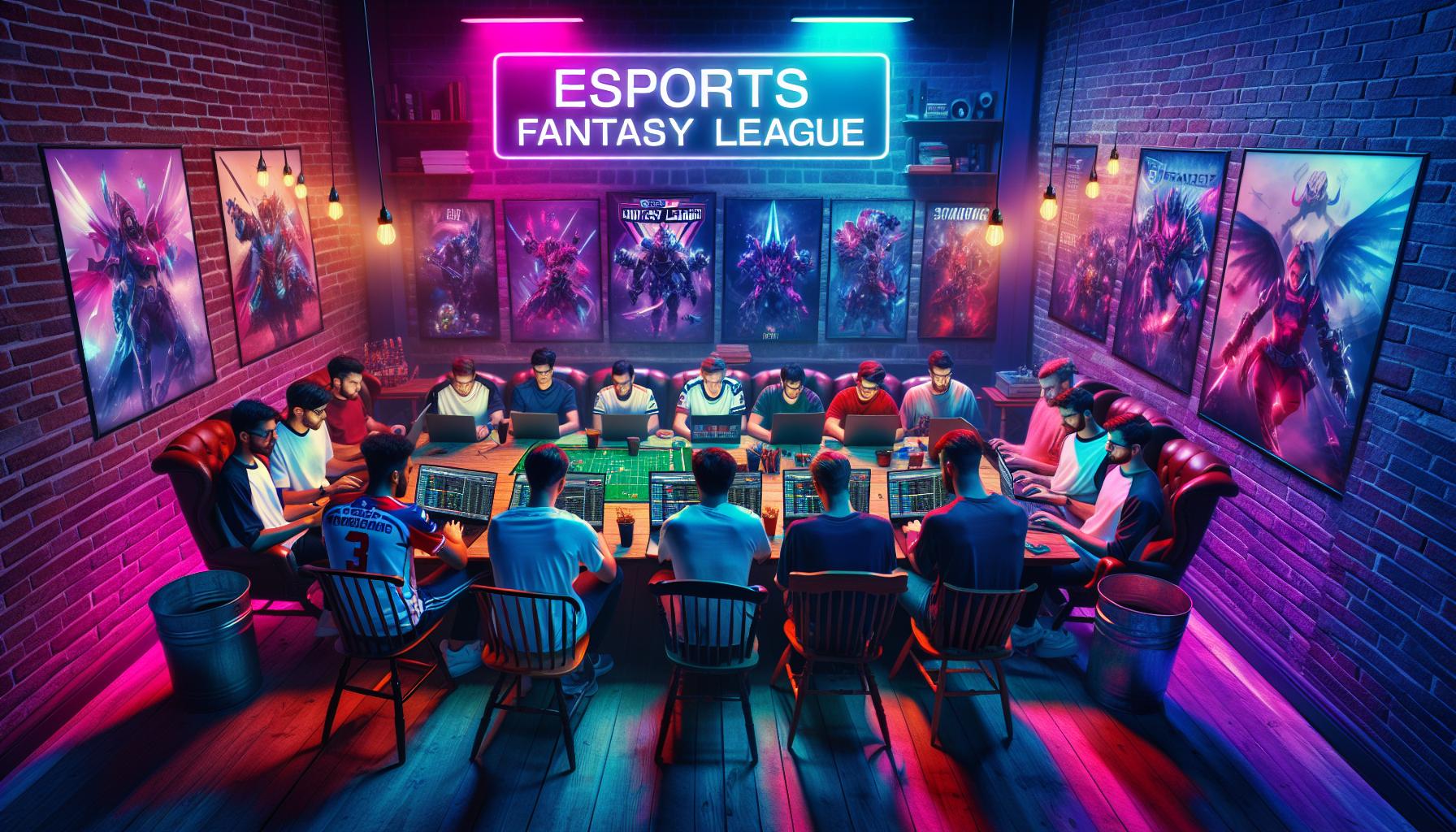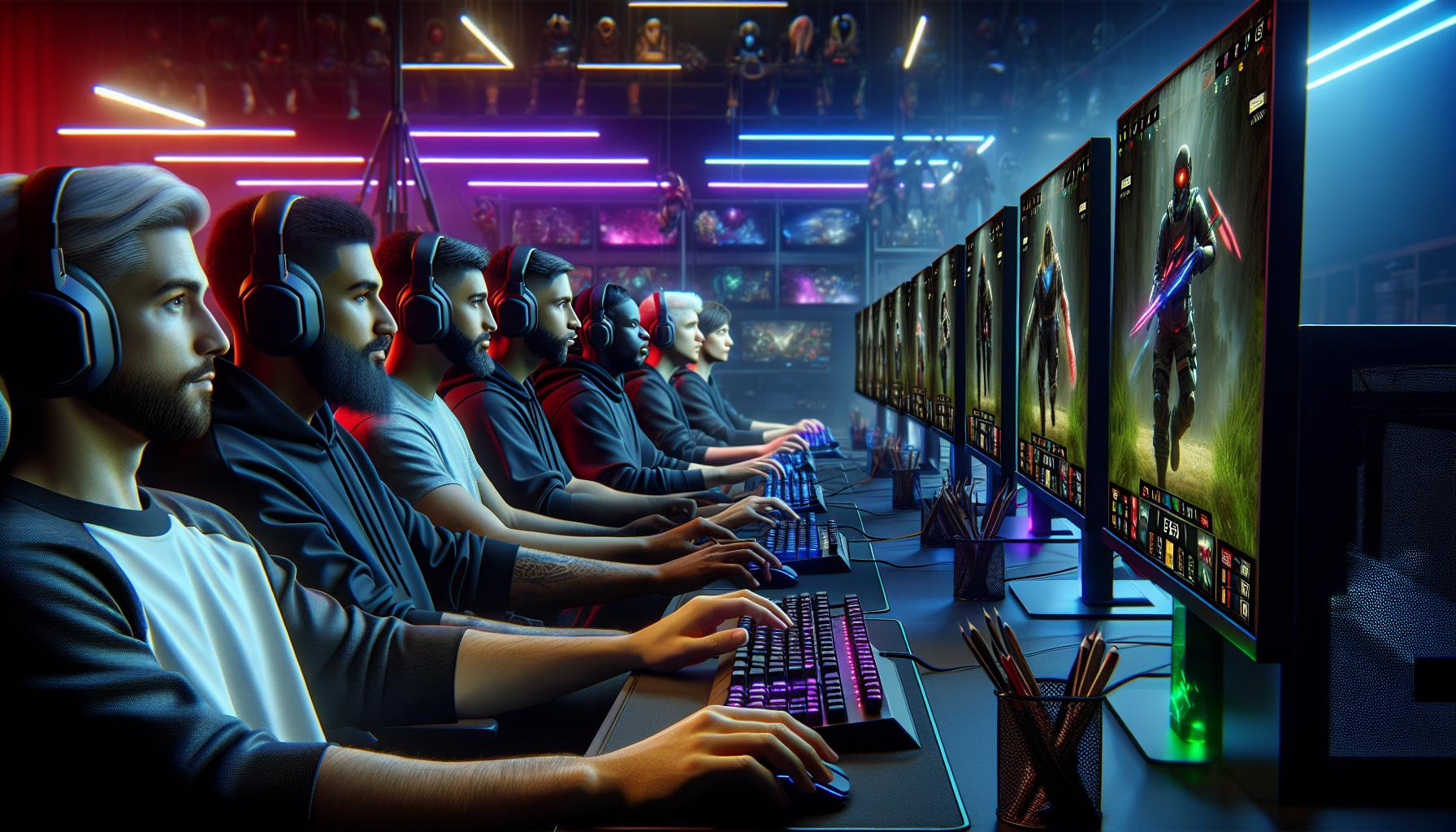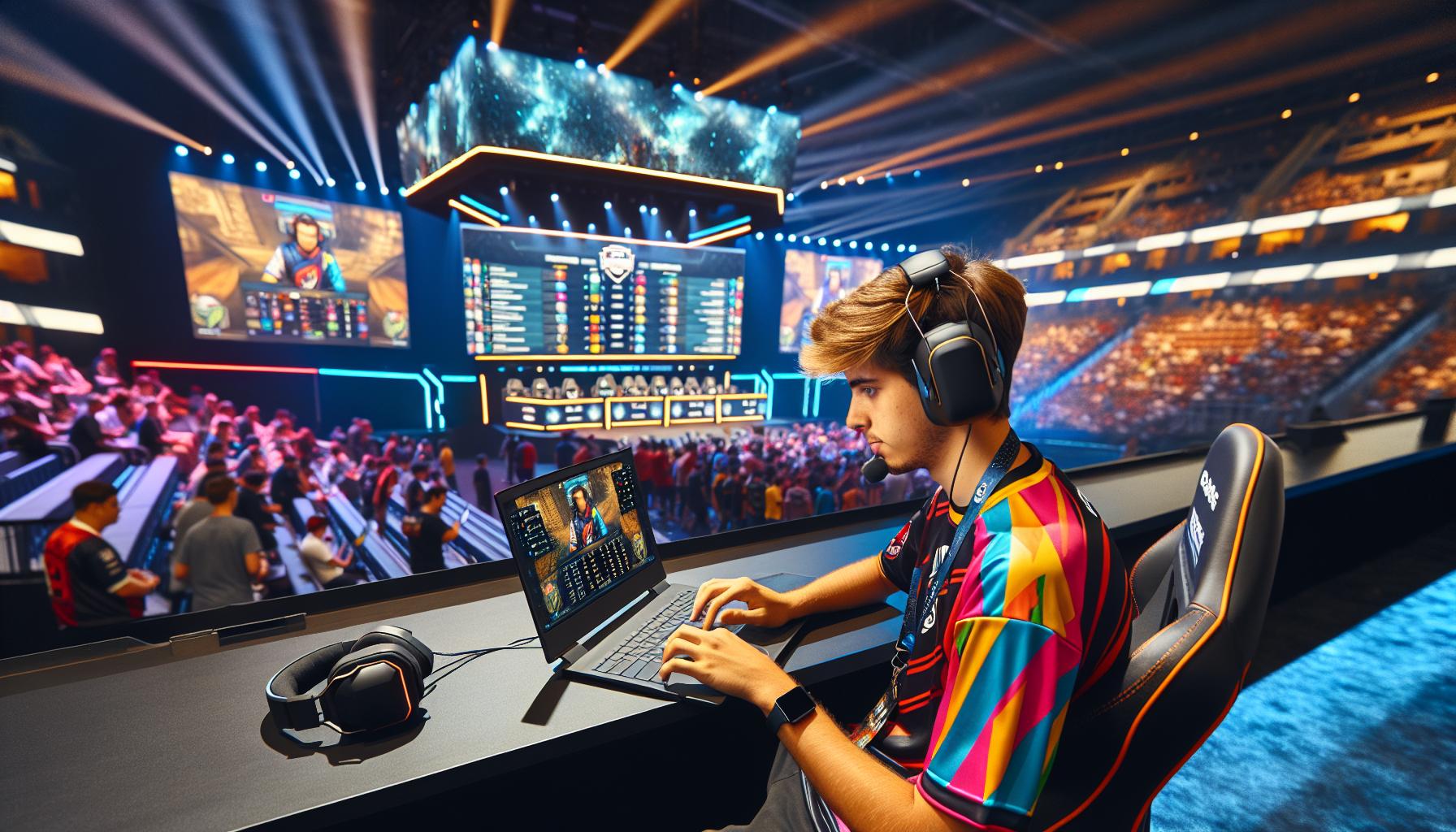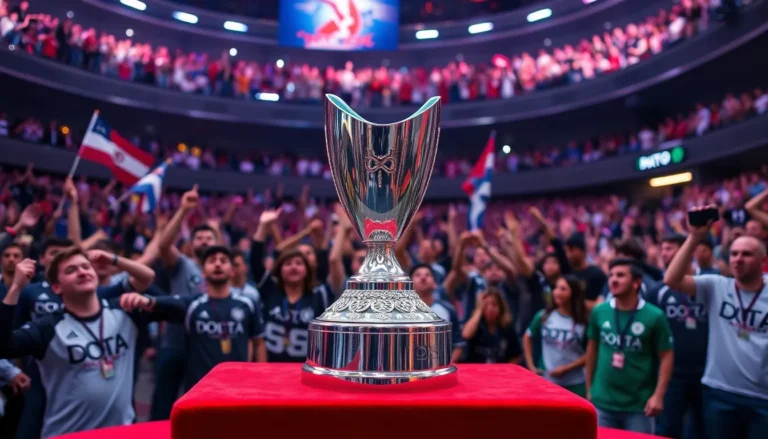Imagine diving into the thrilling world of esports, where strategy and skill collide in epic battles. Now, picture adding a sprinkle of competition to that excitement with an esports fantasy league. It’s like fantasy football, but instead of tossing a pigskin, players are fragging opponents in virtual arenas. This isn’t just a game; it’s an adrenaline-fueled ride that lets fans flex their strategic muscles while cheering on their favorite teams.
Overview Of Esports Fantasy League
Esports fantasy leagues combine competition with fan engagement, offering participants an immersive experience. Players draft professional esports athletes into their fantasy teams, making strategic choices that reflect their performance in actual games. Each player’s statistics contribute to the overall score, creating a direct link between real-world achievements and fantasy success.
Participants often join leagues that utilize various esports titles, including popular games like League of Legends and Dota 2. Game mechanics serve as a foundation for scoring systems, which reward kills, assists, and other in-game achievements. Scoring often varies based on the format, emphasizing the importance of understanding the specific rules and metrics of each league.
Many fantasy platforms allow fans to compete against one another, fostering community interaction. Leaderboards showcase top performers, creating a competitive atmosphere that encourages engagement. Prizes are often awarded to top players, increasing motivation among participants.
Strategy plays a crucial role in these fantasy leagues. Users analyze player performance trends, monitor match schedules, and consider team dynamics before making decisions. Staying informed about potential injuries or roster changes can significantly enhance a team’s performance.
Fantasy esports leagues also attract sponsors and advertisers, expanding revenue opportunities in the gaming industry. This growth indicates a thriving ecosystem that appeals to both traditional sports fans and new audiences. As players join these leagues, they become part of a larger narrative that makes esports more accessible and interactive.
Key Features Of Esports Fantasy League

Esports fantasy leagues offer unique features that enhance the gaming experience for participants. Engaging in strategic gameplay allows fans to fully immerse themselves in competitive esports.
Player Drafting Process
The player drafting process varies by league but generally involves selecting professional esports athletes for a fantasy team. Managers must assess talent and performance trends, staying updated on player stats. Each manager picks players in a serpentine style, ensuring a balanced draft. Competition typically arises from the need to predict which athletes will excel in upcoming tournaments or seasons. This dynamic creates excitement and strategy as managers customize their teams based on real-world performance.
Scoring System
Scoring systems in esports fantasy leagues reflect in-game achievements and player contributions. Typically, points are awarded for actions like kills, assists, and objective completions. Different games utilize tailored scoring metrics, influencing strategies. For example, League of Legends may emphasize objectives, while Dota 2 focuses on kills. Managers monitor these metrics closely to maximize their team’s earning potential. Regular updates on scoring criteria ensure the system reflects current gameplay trends.
Popular Esports Fantasy Platforms

Several platforms dominate the esports fantasy landscape, providing unique features designed for a diverse audience. Each platform offers distinct advantages tailored to player preferences and gaming styles.
Platform Comparisons
DraftKings and FanDuel stand out for their user-friendly interfaces and extensive player options. Competitive scoring systems enhance engagement, encouraging strategic drafting of popular esports athletes. Fantasy esports providers like CS:GO Fantasy and DreamTeam focus on specific games, attracting niche audiences. These platforms enable participants to draft teams based on real-time performance analytics. Statistical insights bolster decision-making, ensuring informed choices throughout tournaments.
Unique Offerings
Some platforms incorporate creative elements that enrich the gaming experience. For instance, Fantasy Esports offers unique scoring modalities, rewarding specific in-game actions differently. Engaging community features allow users to interact through social sharing and real-time chats. Other platforms provide innovative league formats, such as tournaments and challenges, promoting increased competition. Customization tools let users tailor their fantasy leagues, aligning with personal strategies and preferences. Enhanced stats presentations deliver deeper insights, making it easy to track player progress and performance trends.
Strategies For Success In Esports Fantasy League
Successful participation in an esports fantasy league involves strategic planning and diligent management.
Researching Players And Teams
To excel, it’s crucial to analyze player statistics and team performance. Understanding how players perform in specific roles can inform draft choices. Check recent match results and win rates. Players excelling in their roles often translate to stronger fantasy points. Monitoring injury reports and roster changes helps maintain an up-to-date roster. Leagues may vary in scoring systems, making it essential to understand how different games award points. Regularly following esports news enhances awareness of emerging players or shifts in team dynamics. Engaging with community discussions can provide additional insights into player value and strategies.
Managing Your Team
Effective team management plays a vital role in maintaining competitiveness. Set weekly lineup adjustments based on matchups ahead. Utilizing the waiver wire for underperforming players offers potential upgrades. Consistent evaluation of player performance ensures that managers field the best team possible. Pay attention to upcoming tournaments and schedules, adjusting lineups to maximize scoring potential. Rotating players during busy weeks may prevent fatigue-related drop-offs. Actively engaging with community forums often yields new strategies. Using analytics tools helps track player performance trends, providing a more informed approach to decision-making.
Future Trends In Esports Fantasy League
The rise of artificial intelligence (AI) and machine learning is transforming esports fantasy leagues by offering enhanced analytics to users. Players will benefit from predictive modeling that analyzes player performance based on historical data, injury reports, and match schedules. This data-driven approach allows managers to make informed decisions when drafting their teams.
Blockchain technology is also emerging in esports fantasy leagues, providing transparency and security. Players can enjoy decentralized platforms that facilitate trust in transactions and data integrity. Unique digital assets, like NFTs representing athletes, can introduce new ways for fans to engage with their favorite players.
Mobile gaming continues to grow, with a significant number of participants accessing fantasy leagues through smartphones. These platforms will prioritize user-friendly interfaces and streamlined experiences. As mobile connectivity improves, live updates and in-game interaction will enhance real-time engagement for participants.
Augmented reality (AR) and virtual reality (VR) could reshape the viewing experience in esports. Fans might experience live tournaments and interact with their fantasy teams in immersive environments. This level of engagement could deepen fan loyalty, attracting more players to join fantasy leagues.
The increasing popularity of esports among younger demographics suggests a shift in marketing strategies. Brands will tailor their promotional efforts to appeal to millennials and Gen Z, utilizing social media platforms to reach potential participants. Gamified marketing campaigns may also emerge, encouraging fans to engage with their fantasy leagues.
Increased collaboration between esports organizations and traditional sports leagues is likely. Hybrid fantasy platforms may emerge, allowing fans to participate across multiple sports. As these collaborations grow, an integrated experience can enhance user participation and excitement in fantasy competitions.
Conclusion
Esports fantasy leagues offer an engaging way for fans to connect with their favorite games and players. By blending strategy with real-time competition, participants can immerse themselves in the dynamic world of esports. The thrill of drafting athletes and managing teams based on actual performance adds a layer of excitement that traditional sports fans can appreciate.
As the esports landscape continues to evolve, these fantasy leagues are set to grow in popularity. Innovations like AI analytics and blockchain technology promise to enhance the experience further. With a vibrant community and competitive spirit, esports fantasy leagues are quickly becoming a staple for gamers and sports enthusiasts alike.




